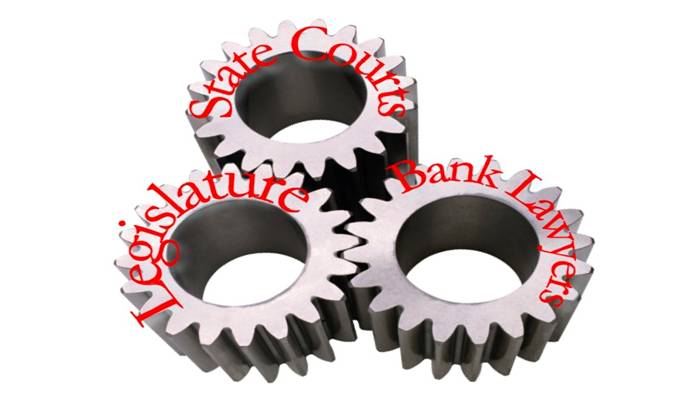![]()
Lost in the system that took the house
Washington Post Staff Writers
Tuesday, September 28, 2010; 11:06 PM
Luis Fernandez’s foreclosure documents never looked quite right.
Critical papers regarding his Orlando home were missing dates, and some signatures appeared to him to be forged. The mortgage had been sold so often – including once in the middle of the foreclosure process – that at times it was hard to tell which company was trying to seize the house. He challenged the foreclosure in court but failed.
Now, as Fernandez seeks to appeal his eviction and get his home back, he has learned that the law firm representing the banks is under investigation for fabricating foreclosure documents. And his file was signed by Jeffrey Stephan, a document processor who made headlines last week for approving what could be hundreds of thousands of cases without verifying whether the foreclosures were justified.
Fernandez says he longs for the days when homeowners knew the bankers holding their mortgage and could work out a compromise when hard times hit. Today, he said, it’s like “fighting a machine.” “You feel like you’re alone and getting beaten up by the system,” said Fernandez, 59, who missed three monthly payments after a heart attack nearly ruined his greeting card business.
Fernandez’s story provides a glimpse into the bureaucratic maze his foreclosure is caught in, along with millions of others working their way through the nation’s courts in the wake of the financial crisis. It is a system rife with shoddy documents, forged signatures and, some state law enforcement officials allege, outright fraud by lenders eager to rid themselves of bad loans.
As more of these practices are coming to light, the entire foreclosure system is facing the threat of grinding to a halt. Connecticut, California and Colorado have frozen all foreclosures by one major lender, and other states are pondering whether to follow suit.
The vast majority of families facing foreclosure do not fight their lenders. But that may change as a growing number of homeowners are contending in lawsuits that the process appears so flawed that they have the right to challenge their cases, even as they admit to missing payments.
Economists say such a trend threatens to overwhelm an overburdened legal system struggling to handle the aftermath of the housing collapse, as well as delay a correction in home values that the real estate market desperately needs to return to normalcy.
Legal experts say many homeowners may have legitimate cases, and even lenders in some instances are withdrawing foreclosure documents for fear that they might not hold up if challenged.
The deep flaws in the foreclosure process came clear last week after Stephan, an employee of Ally Financial’s GMAC mortgage unit, admitted in a sworn deposition that he signed off on up to 10,000 foreclosure documents a month for five years without reviewing them thoroughly. That prompted Ally, which took a $17 billion federal bailout and is majority-owned by the government, to halt evictions in 23 states last week. Stephan also signed foreclosures for hundreds of other mortgage companies, including J.P. Morgan Chase.
A picture is emerging is of an industry – from loan officers in local offices in neighborhood strip malls to the financial titans of Wall Street – eager to purge bad mortgages from its books. To speed that process, documents and signatures were forged, notary witnesses were faked and those responsible for checking court filings never read the massive stacks that passed across their desks at a breakneck pace, attorneys and law enforcement officials say.
Continue reading here…
And as always, be sure to get involved in the comment section of the Washington Post…
~


Now, the rest of Americans need to wake up and fast… they will be knocking on or more likely down your front door if this situation is not corrected. This should be a strong warning to all, even if you own it outright and can prove it, that somehow seems to not matter in the once last bastion of our freedom, the courts. One word of advice here to all call your bank and officially opt out of Check 21, where your paper check gets converted to an “electronic payment” demand a monthly copy of the front and the back of your “wet ink” signatory “check/barer instrument sent to your “servicer”, also send payment’s with a verification of mailing just 95.cents at the USPO.
Always send your coupon with your check, and write the check # on the coupon, make a copy of both before mailing after which attached certificate of mailing to your copies.
Why go to the trouble… well am helping an individual that in the course of 9 months has had three different bailed out banks endorse the check for deposit… with no MERS/MIN number assigned to the loan, no “assignments” recorded with the county clerks office, so how is the payment stream/pass through receivables being shifted/used from one entity to another?
God is indeed in the details!
It’s the judges who implicated themselves in ths massive fraud by turning a blind eye to justice and creating the surge of foreclosures that they are complaining about.
Turn up the heat, the banksters are feeling it .
Is the NOOSE TIGHTENING ???